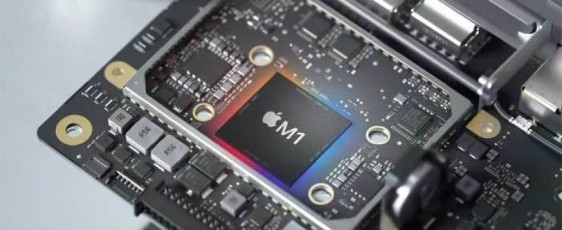Continue to develop baseband chips, Apple spends $445 million to buy HP campus

(The picture comes from the Internet)
Apple confirmed on Tuesday that it has spent $445 million to acquire the Hewlett Packard Enterprise campus in Rancho Bernardo, San Diego, California, according to industry media sources. The park covers an area of 270,000 square meters. According to Apple's previous plan, the company will build a local wireless technology team to design its own cellular modem processor and reduce its dependence on Qualcomm and Intel chips. The industry speculates that Apple may develop its own baseband. Chip ready.
According to the news, Apple officially only stated that it would expand its business in the region and establish a hardware and software engineering center, but did not disclose specific research and development projects.
Self-developed chips have always been Apple's core strategy. Up to now, Apple's self-developed chip layout has expanded from SoC processor chips to power management chips, screen driver chips, smart watch chips S series, T series security chips, and Bluetooth headset main chips. , baseband chip, fingerprint identification chip, etc. In terms of the development progress of 5G baseband chips, Apple is still in the early stages.
It is reported that in 2017, Apple reduced the use of Qualcomm baseband chips due to a patent dispute with Qualcomm, and began to use Intel's baseband chips. At the same time, Apple's road to self-developed baseband chips quietly opened.
In July 2019, Apple announced that it had acquired "most" of Intel's mobile phone baseband chip business for $1 billion, laying the foundation for accelerating the launch of Apple's self-developed mobile phone baseband chips. In the same year, Apple and Qualcomm reached a settlement and signed a new six-year patent licensing agreement.
On June 29 this year, Apple was exposed to the news of "failure of self-development of 5G baseband chips". Well-known Apple analyst Ming-Chi Kuo said on Twitter that the development of Apple's 5G baseband chips may have failed, which means that Qualcomm will still be 2023. The exclusive supplier of 5G chips for iPhone models. Subsequently, on July 3, a well-known person in the industry said that Apple's self-developed 5G chip was not a failure, but delayed the mass production time, "postponing the mass production time from the original second quarter of 2023 to the fourth quarter of 2023" .
Apple did not respond to the news.
It is reported that the research and development of 5G baseband chips is far more difficult than ordinary chips. It not only has very complex algorithms, but also has strict requirements in terms of radio frequency, computing power, and energy efficiency. In addition, it must adapt to the frequency bands of various countries around the world. Do field testing and tuning, and are compatible with previous 4G and 3G GSM standards. According to public information, there are five major players in the 5G baseband chip market: Qualcomm, Huawei, Samsung, MediaTek and UNISOC. Among them, Huawei and Samsung's baseband chips are often used in their own products.
At present, Apple's precipitation in the baseband chip market is still shallow, and it still faces many challenges to launch its self-developed baseband chip. But what is certain is that Apple's baseband research and development will continue. Based on its strong strength and determination, the industry believes that Apple will use its self-developed baseband chips in the future, but it will take a long time.
Parts of materials of this site come from the internet, please contact if there is infringement





